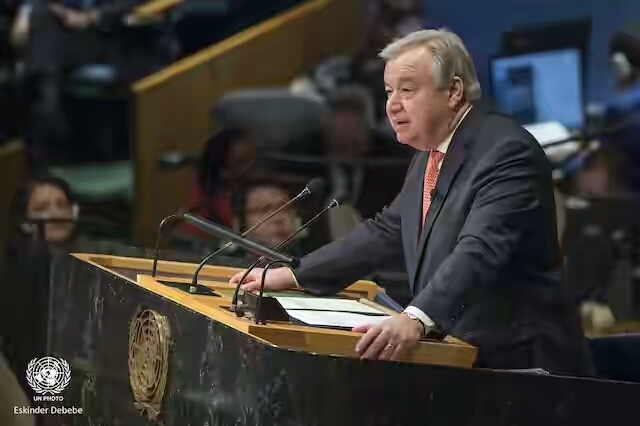Female Genital Mutilation (FGM) denies women and girls their dignity and causes needless pain and suffering, with consequences that endure for a lifetime and can even be fatal, UN Secretary-General António Guterres has said
Guterres, in a message on the International Day, marked annually on Feb. 6 to strengthen momentum towards ending the practice of female genital mutilation, globally recognised as a violation of the human rights of girls and women, stressed that the UN Sustainable Development Agenda promised an end to this practice by 2030.
“On this Day of Zero Tolerance, let us build on positive momentum and commit to intensifying global action against this heinous human rights violation for the sake of all affected women and girls, their communities and our common future,” the Secretary-General said.
In spite of a significant an overall decline in the prevalence of the practice, the UN chief warned that this progress is likely to be offset as the population grows in countries where female genital mutilation is practised, adding without beefed up efforts to eliminate it, more girls will be cut.
In her message, Ms Phumzile Mlambo-Ngcuka, the Executive Director of UN Women, said “the cutting and sewing of a young child’s private parts so that she is substantially damaged for the rest of her life, has no sensation during sex except probably pain, and may well face further damage when she gives birth, is to many an obvious and horrifying violation of that child’s rights.
“It is a kind of control that lasts a lifetime,” she continued; it makes a mockery of the idea of any part being truly private and underlines the institutionalised way in which decisions over her own body have been taken from that girl – one of some 200 million currently”.
The UN Population Fund (UNFPA) and UN Children’s Fund (UNICEF) emphasised that the Sustainable Development Goals recognised the close connection between genital cutting, gender inequality, and development, and reignited global action to end the practice by 2030.
The Executive Director of UNFPA, Prof. Babatunde Osotimehin and his UNICEF counterpart, Anthony Lake, called for faster action to achieve this commitment.
“It means creating greater access to support services for those at risk of undergoing female genital mutilation and those who have survived it,” Osotimehin and Lake said in a joint statement.
“It also means driving greater demand for those services, providing families and communities with information about the harm female genital mutilation causes – and the benefits to be gained by ending it.”
They called on governments to enact and enforce laws and policies that protect the rights of girls and women and prevent female genital cutting, and urged everyone to make this the generation that abolishes the harmful practice once and for all, and in doing so, help to create a healthier and better world for all.
UNFPA, jointly with UNICEF, leads the largest global programme to accelerate the abandonment of female genital mutilation.
The programme currently focuses on 17 African countries and also supports regional and global initiatives.
The theme of the 2017 edition of the International Day is: ‘Building a solid and interactive bridge between Africa and the world to accelerate ending FGM by 2030’. (NAN)

